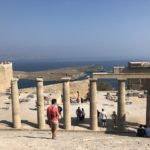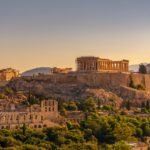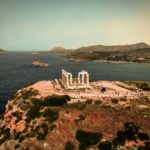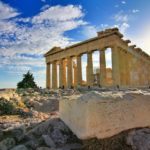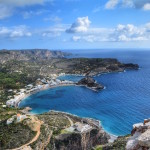Finding a Place to Call Home in Greece
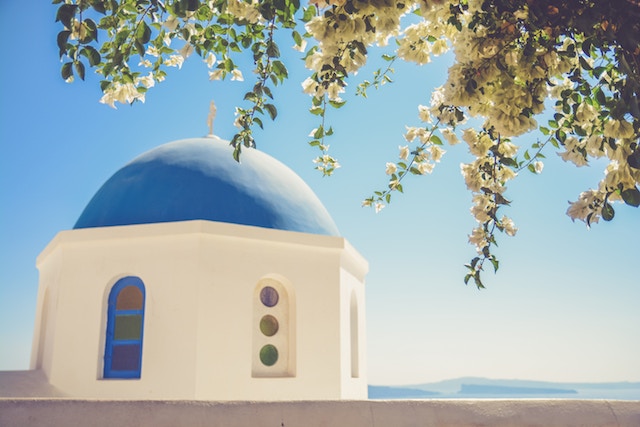
 I arrived in Athens not really knowing what to expect. Matt (my boyfriend) and I made a last minute decision to add Greece to our itinerary and I wasn’t disappointed. Sarah Parnell’s Pink Pangea article “7 Things You’ll Want to Know Before Traveling to Greece” gave me some insight about what to expect.
I arrived in Athens not really knowing what to expect. Matt (my boyfriend) and I made a last minute decision to add Greece to our itinerary and I wasn’t disappointed. Sarah Parnell’s Pink Pangea article “7 Things You’ll Want to Know Before Traveling to Greece” gave me some insight about what to expect.
Forever worrisome about getting to the airport on time, I noted her advice on leaving early to reach your destination. I thought that tip would come in the most handy during our time in Greece but I ended up connecting with something else Sarah wrote about, something I didn’t expect.
Traveling gets me thinking. Over the past two-and-a-half months I can’t even count the number of times Matt has asked me, “What are you thinking about?” He always has a good read on me. From the moment we left our hostel to trek over to the Acropolis, Matt could tell I was happy.
I turned to him and said, “I like it here. We’re coming back.” Athens was a short three-day stay. I want to see the islands in the future. Enjoying our walk, we arrived at the Acropolis excited to explore. We finally ascended the hill and saw the Parthenon. Then it hit me. Out of nowhere I thought, “Where is my homeland?”
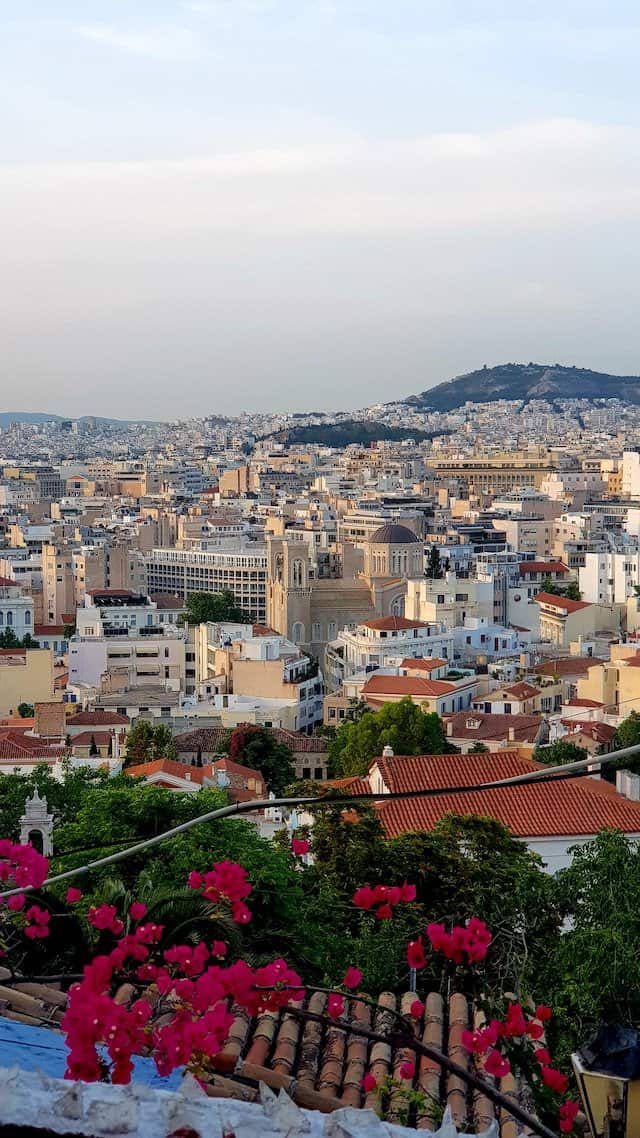
On top of the Acropolis, I pined for a connection to all of myself and mourned the fact that I may never know.
Sarah mentioned frequently in her article that her lineage is Greek, that she wanted to visit Greece to connect with her family. On my backpacking trip, Matt and I specifically traveled to Scandinavia on the knowledge that his ancestors were from that area and he wanted to explore those countries.
As I took in the top of the Acropolis (which is absolutely gorgeous by the way), I looked around and wondered how many people who stood there with me had come to visit their family or ancestors, their history. This was compounded by the fact that the lineage in Greece is clearly so ancient. The buildings on the Acropolis are so old, which means Greeks can see a physical manifestation of their people’s endurance; it isn’t fleeting or ephemeral.
I am half French Canadian and half who knows what (most heavily Ukrainian but there’s much more in there). A lot of my family still lives in Quebec so I’ve been there quite a few times and feel a connection to that homeland. But where’s the other? It would be nice to know where exactly I fit into the grand scheme of the world’s history and geography. Maybe that desire comes from studying history in university. Maybe that desire comes from being an individual lost in her mid-twenties.
When a thought like not ever truly knowing where you come from is so fresh, it can be disconcerting.
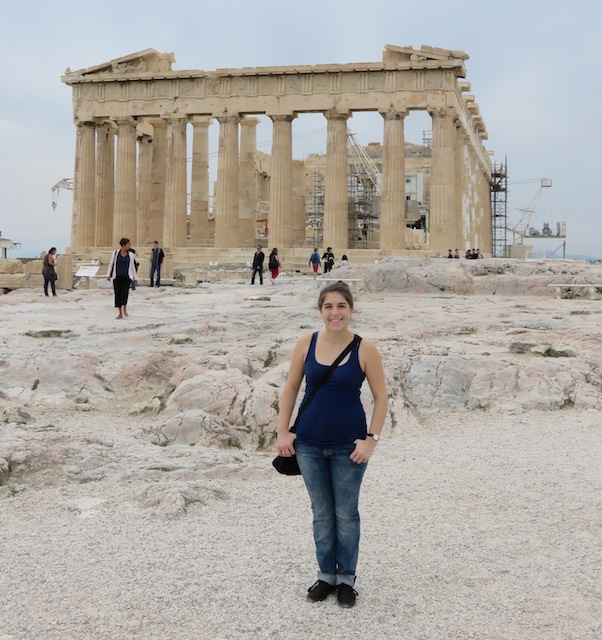
On top of the Acropolis, I pined for a connection to all of myself and mourned the fact that I may never know. It might sound a bit dramatic but it’s true. When a thought like not ever truly knowing where you come from is so fresh, it can be disconcerting. Especially when you come from a culture where asking where your family is from often means where did they immigrate from.
During my study abroad experience in Ireland, I had to explain to my Irish friends why Americans are so fixated on their lineage and make an effort to reconnect with it. It was weird to feel such a strong connection with Greece and its history as I toured the Acropolis and be unable to say that I didn’t truly have a connection to that country simply because of a lack of ancestors.
Of course, family is a valid, deep, and acceptable connection to a location; it’s how I am linked to Canada and French Canadian tradition. But what about those Americans who don’t know where their ancestors are from? Where do they fit in? What about my other half?
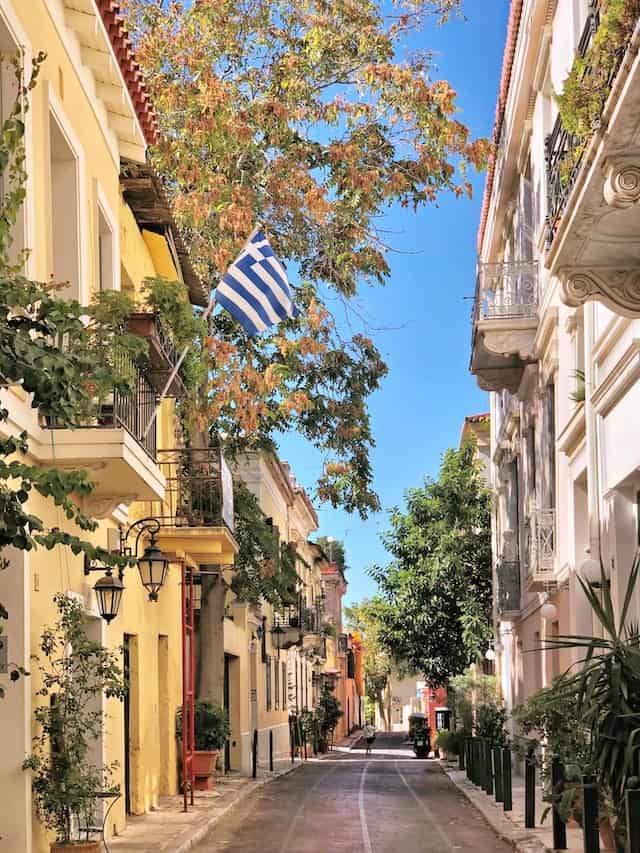
When I arrived in Greece I knew the people’s kindness, happiness, and food. I felt at home.
I find that although I lack solid knowledge about my father’s ancestors, I still am able to find connections with that other unknown half of me as well as the person that I’ve become. And, I know that I felt so strongly and positively about Greece because of my father. When I was a little girl, my dad was very good friends with the owner of a Greek restaurant back in New Hampshire.
As I remember my father telling me, the owner came to the United States from Greece not too long before he started his restaurant.
My childhood was filled with my dad bringing food back from various restaurants, food that I had never tried in my life. And so I got hooked on Greek food and Nepalese food or Thai food or whatever else he happened upon. Eventually we would find ourselves visiting the restaurants, meeting the owners, my dad’s friends. I became connected with that culture through food and friendship. When I arrived in Greece I knew the people’s kindness, happiness, and food. I felt at home.
Wandering around the Acropolis, I marveled at the cityscape, the ancient ruins, the presence of a history so long and grand that was literally within my reach. I realized that Greece is part of me even if I can’t draw a direct line through my ancestors. Traveling around Europe has made me see how people are so much more than where they or their families come from.
Searching for My Homeland and Finding a Home in Greece
Their lineage can be pioneers of science, thought, or culinary aptitude, masters of literature, physical strength, or political power, or geniuses of music, art, or military prowess. The list is as endless and vast as the human race’s curiosities or quirks.
And in that way, at the top of the Acropolis in Greece, I found my second lineage beyond ancestors and location, connected to my experiences and passions.
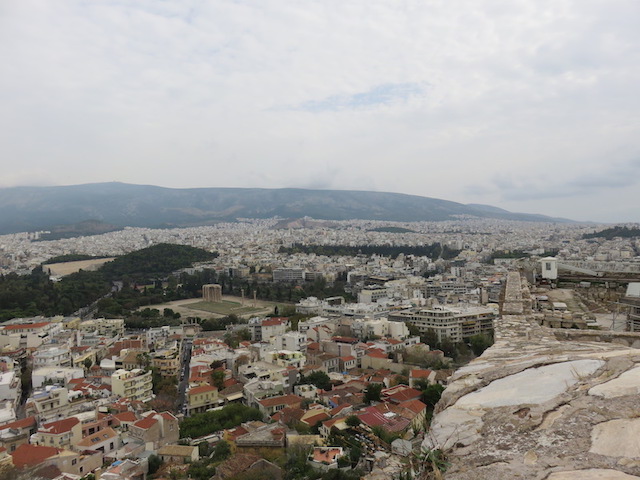
Searching for My Homeland and Finding a Home in Greece photo credits: Monique Wilkins and unsplash.com


